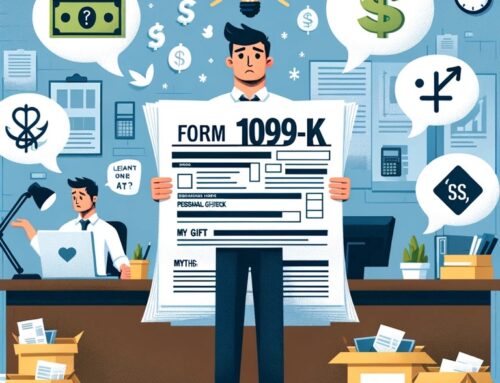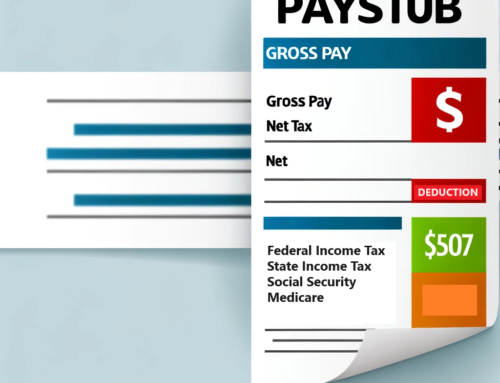Source: S S A / I R S R e p o r t e r, s u m m e r 2 0 1 0, Page 4
The Alternative Fuel Motor Vehicle Credit was enacted by the Energy P olicy Act of 2005 and includes separate credits for four distinct categories o f vehicles:
1. Qualified Hybrid Vehicles;
2. Qualified Fuel Cell Vehicles;
3. Qualified Alternative Fuel Motor Vehicles (QAFMV) and Heavy Hybrids; and
4. Advanced Lean-Burn Technology Vehicles.
The amount of the potential credit varies by type of vehicle and which of the
four credits applies.
Internal Revenue Code Section 30B provides for the Alternative Motor
Vehicle Credit. Notice 2006-9 provides procedures for manufacturers to certify
passenger auto and light trucks as Qualified Hybrid Vehicles and Advance
Lean Burn Vehicles, and Notice 2007-46 provides procedures for heavy hybrid
vehicles. Notice 2006-54 provides procedures for manufacturers to certify
vehicles as Qualified Alternative Fuel Motor Vehicles (QAFMV). Notice 2008-33
provides procedures for manufacturers to certify Fuel Cell Vehicles.
Each of the four credits under the Alternative Motor Vehicle Credit is
addressed individually below.
1. Qualified Hybrid Vehicles
Hybrid vehicles are a combination of gasoline and electric engines. These
vehicles have drive trains powered by both internal combustion engine and
a rechargeable battery.
Generally for qualified hybrids, a taxpayer may rely on the manufacturer’s
certification that a specific make, model and model year vehicle qualifies for
the credit and the amount of the credit for which it qualifies. Taxpayers may
claim the full amount of the allowable credit up to the end of the first calendar
quarter after the quarter in which the manufacturer records its sale of the
60,000th hybrid passenger automobile or light truck or advance lean burn
technology motor vehicle. For the second and third calendar quarters after the
quarter in which the 60,000th vehicle is sold, taxpayers may claim 50 percent
of the credit. For the fourth and fifth calendar quarters, taxpayers may claim
25 percent of the credit. No credit is allowed after the fifth quarter.
2. Qualified Fuel Cell Vehicles
A qualified fuel cell motor vehicle is a vehicle that is propelled by power
derived from one or more cells which convert chemical energy directly into
electricity.
The base amount of the new qualified fuel cell motor vehicle credit varies
with the gross vehicle weight rating of the vehicle. Passenger automobiles and
light trucks are eligible for an additional fuel economy amount that varies with
the rated fuel economy of a qualifying vehicle. A list of qualifying cell vehicles
is available.
3. Qualified Alternative Fuel Motor
Vehicles (QAFMV) and Heavy Hybrids
For alternative fueled light and heavy duty vehicles to meet the requirements
of QAFMV, the vehicles may be either new, original equipment installation
vehicles, or prior use vehicles that are converted to use an alternative fuel by
an aftermarket installer. Qualified alternative fuel includes compressed natural
gas, liquefied natural gas, liquefied petroleum gas (propane) and hydrogen. The
vehicles may also operate on certain mixed fuels such as liquefied propane gas
or liquefied natural gas and gasoline. For a list of qualified QAFMV see Qualified
Alternative Fuel Motor Vehicles (QAFMV) and Heavy Hybrid Vehicles on IRS.gov.
4. Advanced Lean-Burn Technology Vehicles
Advanced Lean-Burn Vehicles are passenger cars or light trucks with an
internal combustion engine designed to operate primarily using more air than
is necessary for complete combustion of the fuel. The vehicles must also
incorporate direct fuel injection technology and achieve at least 125 percent
of the 2002 model year city fuel economy rating.
Available credit amounts may vary and include a base credit amount
based on fuel economy compared to the 2002 model year city fuel economy
rating and an additional amount based on the vehicle’s lifetime fuel savings.
See Advanced Lean-Burn Technology Vehicles on IRS.gov for the list of certified qualifying vehicles.
Source: S S A / I R S R e p o r t e r, s u m m e r 2 0 1 0, Page 4




Leave A Comment
You must be logged in to post a comment.